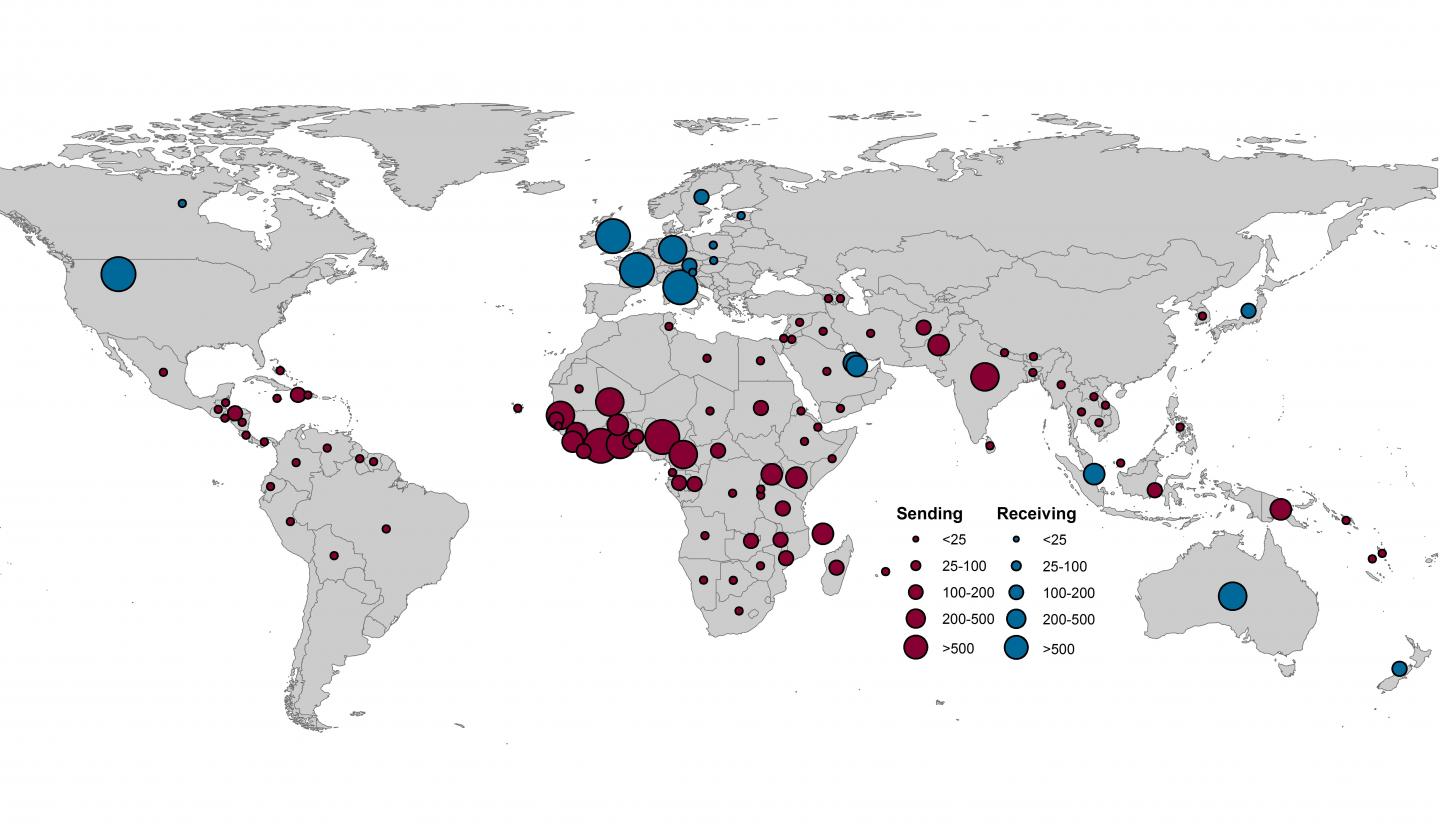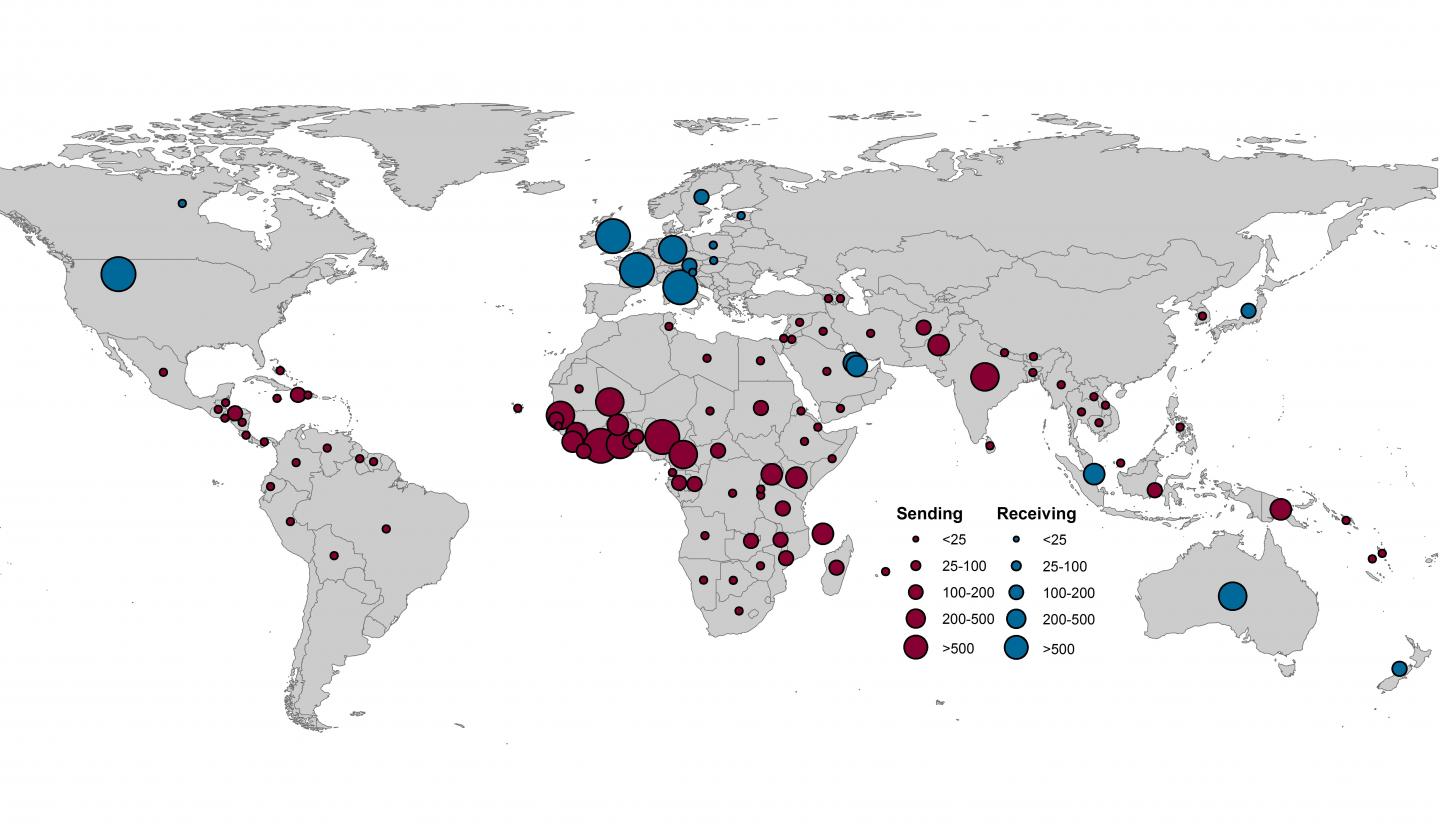
Credit: University of Southampton
An international study, led by the University of Southampton, shows the UK and France experience the highest number of malaria cases imported from other countries.
Research led by WorldPop, based at the University, examined and mapped the movement of the disease from endemic countries (those where malaria is regularly found in the population) to around 40 countries defined as being malaria-free or non-endemic (such as the UK).
Findings, published in the journal The Lancet Infectious Diseases, revealed that countries with the highest average number of imported infections per year over the past decade were France (2,169), UK (1,898) and USA (1,511), followed by Italy (637) and Germany (401).
Infection movement was strongly skewed to a small number of 'high-traffic' routes, with malaria cases originating from West Africa accounting for 56 percent (13,947) of all cases detected in non-endemic countries.
Andrew Tatem, Director of WorldPop and University of Southampton professor of geography, comments: "This is the first worldwide assessment of imported malaria cases in 20 years and mapping this data is hugely valuable in helping us understand how we can mitigate against the effects of the global movements of the disease.
"Imported malaria can be expensive to treat, contribute to drug resistance, sometimes cause secondary local transmission and threaten the long-term goal of eradication. This study forms part of wider efforts to understand patterns of human and malaria parasite movement to help guide elimination strategies."
The research, supported by the Bill and Melinda Gates Foundation, constructed and analysed a database of publically available nationally reported statistics on imported malaria covering more than 50,000 individual cases over ten years.
Although most incidents of malaria in non-endemic countries originated in West Africa, the study showed 20 percent were from India (4,988), 13 percent from East Africa (3,242) and three percent from Papua New Guinea (748). While the West Africa to France and UK routes showed the strongest imported malaria link, other high traffic routes included USA / India (149 cases on average per year), Australia / Papua New Guinea (97), UK / Pakistan (69) and USA / Haiti (52).
By mapping this complex network of malaria movements across continents the researchers highlighted that a number of factors, beyond geographic ones, influenced the strength of importation levels. For example, historical, economic, language and cultural ties all play a part – population movements with former colonies had particular influence; such as Nigeria, Ghana and Kenya with the UK, and Mali, Niger and Chad with France.
The researchers hope to conduct further studies to examine which factors are the drivers behind the patterns of malaria spread between endemic and non-endemic countries.
###
Media Contact
Glenn Harris
[email protected]
44-023-805-93212
@unisouthampton
http://www.southampton.ac.uk/





